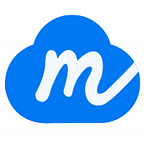On January 19th, MEMO held an AMA (ask me anything) live stream in the telegram group. David, the community ambassador of MEMO specifically introduced MEMO’s innovative technology and future plan, which attracts a large number of people who are interested in the decentralized cloud storage system. Below are the questions that many are interested in. Let’s have a review.
Q1. During these days, a multi-chain platform is an obligation to be considered a competitive project, so can you explain who and how many chains are you able to support?
Answer: MEMO can be storage layer for the top public Blockchain. Now it is going to support Ethereum, Avalanche, Harmony, Solana, and the other layer2 solution, such as Metis public chain.
Q2. Do you have tutorial videos so we can get to know your project more clearly or do you have a YouTube channel or something? can you share it with us?
Answer: Yes, we have YouTube channel. Here is the link:
https://www.youtube.com/channel/UCv596bF_KxcoxAKp0AOhkLA
Q3. Are you planning to promote your project in countries / regions where English is not good? Do you have a local community for them to better understand your project?
Answer: Yes, we have different regional communities. Here are the links:
Memolabs: https://t.me/memolabsio
Memolabs Africa https://t.me/Memolabs_Africa
Memolabs Latin https://t.me/Memolabs_Latin
Memolabs Turkish https://t.me/Memolabs_Turkey
Memolabs Asia https://t.me/Memolabs_Asia
Memolabs Korean https://t.me/Memolabs_Korean
Q4. Can you tell us about some of your partners and who you plan to collaborate with in the near future?
Answer: Currently we have reached cooperation with Metis, Harmony, etc. Our future collaboration plan will be established soon.
Q5. Can you list 1–3 killer features of this project that makes it ahead of its competitors? What is the competitive advantage your project has that you feel most confident about?
Answer: Compared with other blockchain-based storage systems, MEMO adopts a more concise and efficient technical processing method
1)Innovative architecture design
To maximize blockchain security and reliability in alignment with scalability and cost-effectiveness, MEMO only allows on-chain storage of most critical and stable data (e.g., system role profiles) and off-chain storage of non-critical information and user data (e.g., address mapping between users and data) to reduce burdens brought by extra on-chain transactions and storage of enormous address mapping information.
2)Unique public verification mechanism
MEMO has developed a public verification method that can effectively reduce communication overheads and computing costs of verifying the proof. Public key holders can verify proofs in one second and generate certifications in seconds. The communication overheads can be significantly reduced through proofs compression to the constant level.
3)Multi-level fault tolerance
Based on data volume and characteristics, MEMO adopts a fault-tolerant method that combines two fault-tolerant methods: multiple copies and erasure codes. The former is used for smaller metadata, whereas the latter is used by default for a bigger data. Our User can choose from the two options. This flexible multi-level fault tolerance mechanisms can enhance space utilization and minimize system space as well as ensure our user autonomy.
4)Original data recovery mechanism
In terms of recovery mechanism, MEMO is powered by our proprietary Risk-Aware Failure Identification (RAFI) technology on three dimensions: recovery parallelism, recovery volume, and recovery timing. Our RAFI technology optimizes classification and confirmation strategy can considerably reduce recovery time by promptly identifying at-risk data for improved security and reliability.
